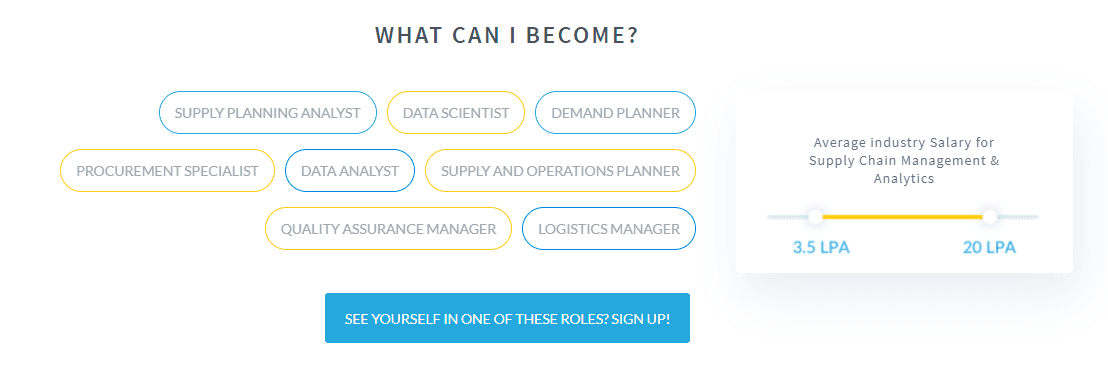Every business wants to meet the supplies as per the demand of the end-users. For doing so, a business has to ensure effective SCM (Supply Chain Management). Supply chain management can help a business in knowing about the flow of raw materials and finished goods. In this digital era, businesses need individuals who are familiar with supply chain analytics.
Supply chain analytics can uncover areas of improvement and reduce overhead costs of an organization. Read on to know more about SCM and how to learn it.
Why is SCM necessary for a business?
Businesses are now realizing the benefit of effective supply chain management. The demand for SCM experts has increased over the years. The pros of SCM in the current scenario are as follows:
- You can protect your business from market disruptions and production shortages via effective supply chain management.
- SCM improves your inventory system and reduces errors in day-to-day operations. You can optimize the space for finished goods with SCM.
- A business can optimize the display of products on sale outlets with SCM. You can decide which product should be highlighted at your physical store with supply chain analytics.
- You can increase the customer walk-in ratio with better supply chain management. You will have better relationships with suppliers and vendors due to SCM.
- When fewer errors occur in your day-to-day operations with SCM, you can increase the overall productivity of your business.
- You can accumulate raw materials and finished goods according to the demand of customers. Oversupply and undersupply issues can be avoided with better SCM.
- You can uncover all types of overhead costs with SCM. Unwanted overhead costs can be managed when you know about your operational expenses with SCM.
What are the risks in supply chain management?
Some of the risks associated with supply chain management that should be avoided are as follows:
- Sometimes, businesses miscalculate the demands of the customer for a product or service. Demand risks can result in oversupply or undersupply.
- SCM is concerned with managing environmental risks that can delay the delivery of products or raw materials. Political, governmental, and social issues often lead to delay in supply chain processes.
- Contingency risks are also associated with supply chain processes. Your business should have a backup plan for any supply chain disruptions.
- Manufacturing risks are also to be addressed by SCM experts in an organization. A small manufacturing error can affect the complete supply chain system.
How to learn supply chain analytics?
More and more businesses are understanding the importance of SCM in cutting losses. There will be a lot of opportunities in the SCM industry in the coming years. You can complete a supply chain management course to futureproof your career.
 Enthusiasts can go for the Professional Certification in Supply Chain Management & Analytics provided by Imarticus Learning. The pros of the supply chain management online course offered by Imarticus are as follows:
Enthusiasts can go for the Professional Certification in Supply Chain Management & Analytics provided by Imarticus Learning. The pros of the supply chain management online course offered by Imarticus are as follows:
- Imarticus provides this course in association with IIT Roorkee which, is a leading university in India.
- You will learn quickly via numerous real-world SCM projects under this course.
- You will be applicable for a 3-day campus immersion program where you get to interact with peers and faculty of IIT Roorkee.
- The IIT supply chain management course covers numerous aspects like sales planning, operations planning, supply chain performance, and distribution network.
Conclusion
The recent COVID pandemic has highlighted the need for SCM experts. With supply chain analytics, businesses can avoid market disruptions and economic disturbances. The industry-oriented online course of Imarticus can help in learning SCM industry practices. Start your IIT supply chain management course now!




 A supply chain analyst plays a critical role in the design and execution of large-scale initiatives. A supply chain analyst gathers and processes data in order to improve the supply chain system. He/she works to improve employee performance and reduce the expenses of project-related commodities.
A supply chain analyst plays a critical role in the design and execution of large-scale initiatives. A supply chain analyst gathers and processes data in order to improve the supply chain system. He/she works to improve employee performance and reduce the expenses of project-related commodities.




 Let’s check out a list of some giants that greatly need supply chain managers:
Let’s check out a list of some giants that greatly need supply chain managers: 

 The
The 
 Future-proof your
Future-proof your